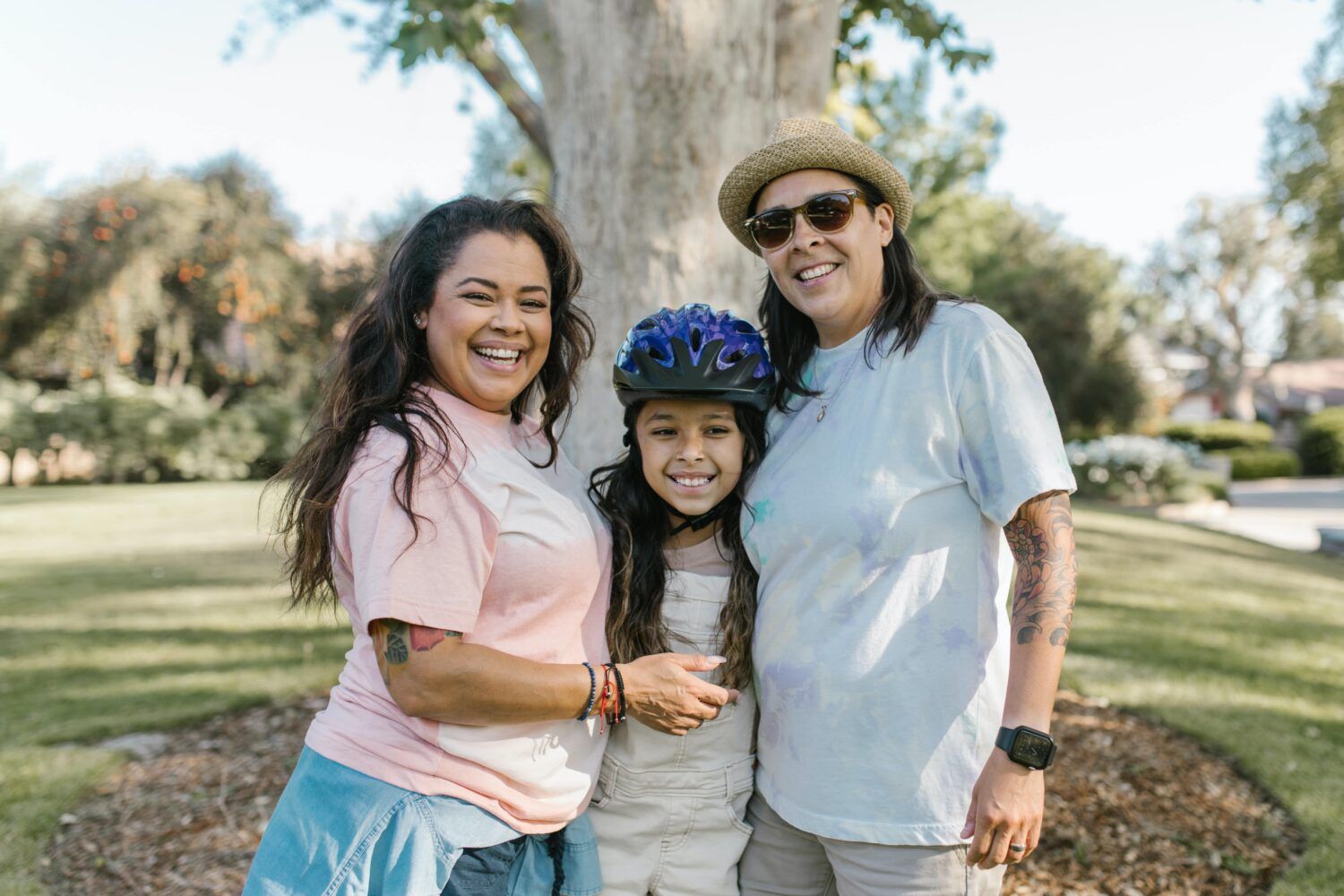Parenting is difficult. It is a constant dance between freedom and flexibility, rules and restrictions. When your child is struggling, the parenting instinct kicks in and you want to do everything you can to take away the pain. Plus, if your child is questioning, exploring, or coming out with their sexuality or gender identity, it can be even more difficult to offer support. If you are the parent or caregiver of a LGBTQIA+ youth, whether you raised your child from birth or are someone like me who is a member of the community and serves as a parental figure to LGBTQIA+ youth, what’s important is that you consistently show up and provide support.
In my role as a Clinical Director and licensed clinical psychologist, I strive to advocate, promote, and integrate best clinical practices within quality programming for everyone. I have worked with so many fantabulous LGBTQIA+ youth and parents in the community in various ways, and bore witness to their unique struggles while doing my best to meet their needs. And, let me tell you (and you likely already know this), with love and support, you can make a huge difference.
Over the years, I’ve identified some suggestions I’d like to share with you on how to be supportive of the LGBTQIA+ youth in your life…
Be present and tell them you love them and support them.
For many, coming out to the people who love them is the scariest part. Not only verbalize your love, but show them by supporting and accepting them no matter what. Unconditional love is worth more than anything.
Keep the door open and encourage them to talk to you.
Get to know their friends and find out what’s going on in their lives. Staying connected to your child’s everyday world makes it easier for them to talk to you about big issues, like sexuality or gender identity. Be aware of your small reactions to new information or things that you may not understand, your child will notice.
Get the facts.
Being gay is not "just a phase," and there is no "cure." Being gender-diverse or transgender is not a social fad. Be excited to learn about unique aspects of your child! Celebrate your wonderful, glorious child and be accepting of who they are, as they are, and who they become. This is a chance to open your mind AND your heart. Not sure about the facts? Check out: www.pflag.org, www.thetrevorproject.org, or for local support check out https://onenten.org/ or Phoenix Children Hospital’s resource guide at https://www.phoenixchildrens.org/gender-support-program/programs-services/resources.
Stay connected with their teachers.
School is hard for mostly everyone. Your child spends a lot of time at school, and it can be a breeding ground for tough situations and bullying. Maintain frequent contact with teachers and other adults on campus. Don't be afraid to speak up if you think there is a problem. Bullying is a real problem for all students, but research shows that LGBTQIA+ youth are more likely to be victims of bullying than their straight cis-gender peers.
If your child shows sudden and/or significant changes in behavior, new/increased discipline or behavioral issues at school, declining grades, or unexplained absences, talk to your child. Give them the space to share with you what might be happening. Equally as important, do you have access to your child’s social media accounts? Social media can often shed light on what is happening at school and within their peer groups. There is a delicate line to walk between personal space and prying, but it is worth navigating. Cyber bullying is very real and incredibly toxic, and there are repercussions for bullies. Schools have a legal duty to have policies and procedures to protect students from bullies.
Please remember, you are not alone. There are resources and support networks available to help you navigate these situations. Check out the Phoenix or Tucson chapter of PFLAG, the nation’s largest organization for LGBTQIA+ people, their parents and families, and allies.
If you want to speak with someone, Southwest Behavioral & Health Services’ school and community-based counseling services can offer support and resources.
About the author
Dr. William Marsh is a Clinical Director and a primary supervisor for the APA accredited clinical psychology internship program with Southwest Behavioral & Health Services. With all areas of his work, he incorporates his passion for fostering positive interpersonal dynamics that help others identify, support, and reach their goals and dreams. More information about programs and services is available at www.sbhservices.org.
